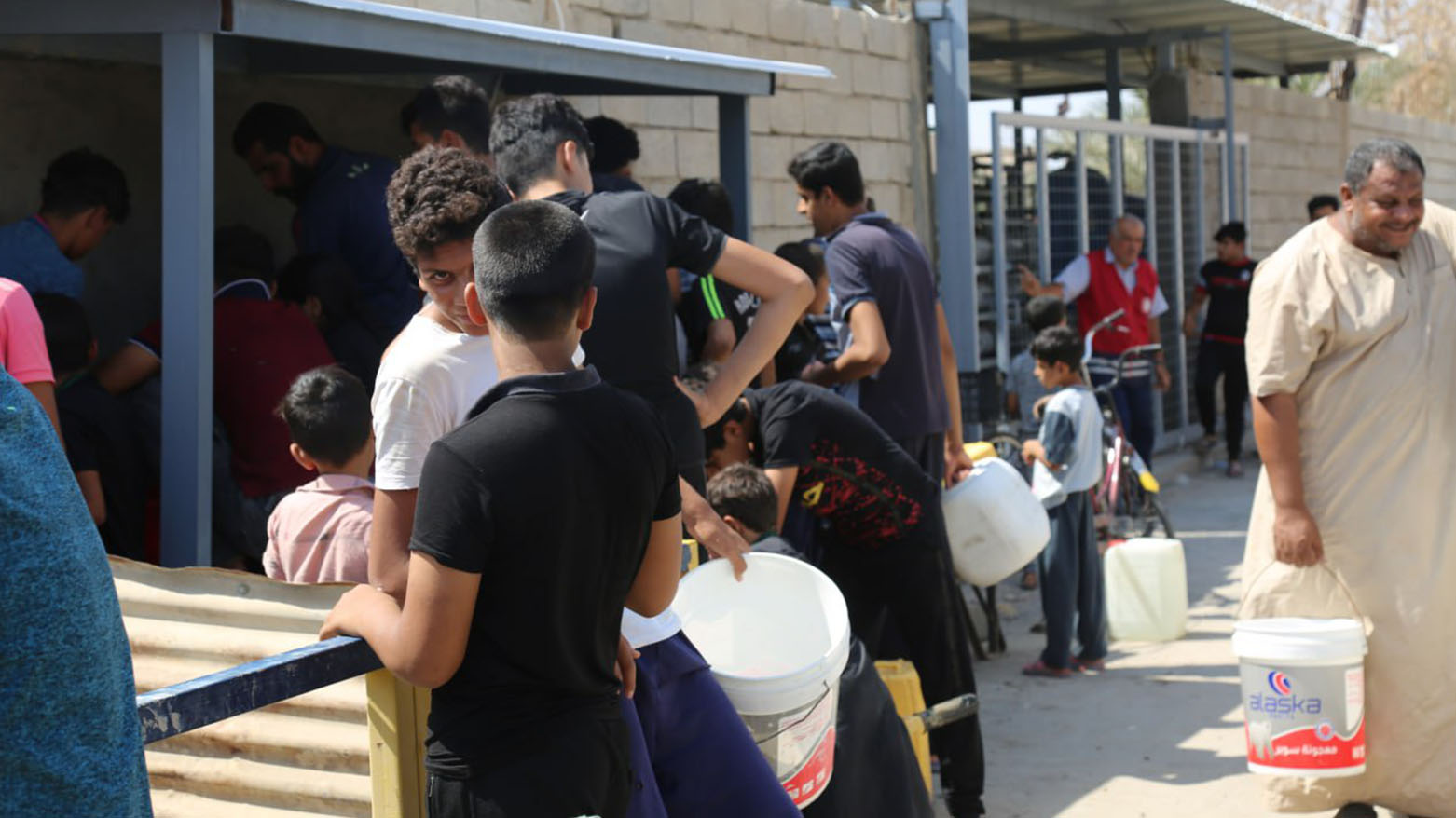Basra Faces Mounting Water Crisis Amid Rising Salinity and Heat: Red Crescent Stations Overwhelmed
Basra's water crisis deepens as 16 Red Crescent desalination stations battle extreme salinity, supplying 60K+ desperate residents. With temps soaring & protests erupting, mobile units deploy as taps run dry—a lifeline in Iraq's worsening water catastrophe.

By Ahora Qadi
ERBIL (Kurdistan24) – The Iraqi Red Crescent Society announced on Wednesday that its 16 reverse osmosis (RO) water desalination stations in Basra are witnessing a sharp surge in demand, as the city grapples with soaring temperatures, rising salinity, and an intensifying drinking water shortage.
The humanitarian organization stated that the desalination units are strategically dispersed across several districts and rural areas in the province, including Abu Al-Khasib, Safwan, Shatt al-Arab, Al-Zubair, Al-Ashar, Al-Risala, Manawi Basha, and Al-Hakim, in addition to remote villages.
According to the Red Crescent, the combined output of these RO stations exceeds 50,000 liters per hour, providing access to potable water for more than 60,000 residents who are otherwise unable to meet their daily needs due to the deteriorating quality of Basra's municipal water.
Battling Extreme Salinity and Inaccessibility
Each station is equipped with marine-grade reduction filters, capable of treating water with salinity levels reaching up to 25,000 milligrams per liter. This technology is essential for mitigating the effects of the saltwater intrusion that has plagued Basra’s southern areas for years, further exacerbated by climate change and the declining flow of the Shatt al-Arab river.
The Red Crescent emphasized that efforts are underway to deploy a mobile RO unit, which will be placed on standby to address any emergency developments in the province’s worsening water situation.
Growing Public Anger and Protest
The announcement comes amid ongoing public demonstrations throughout Basra, where residents are expressing outrage over the local government’s failure to address the escalating water crisis. Multiple neighborhoods have gone days without access to clean water, as rising salinity and inadequate infrastructure continue to cripple the supply system.
Protesters from both urban and rural areas have voiced frustration at the contamination of water supplies and the collapse of the distribution networks. Reports also indicate that livestock losses have increased significantly due to water scarcity, pushing cattle breeders to join the wave of demonstrations.
Residents accuse Basra’s officials of gross negligence and ignoring repeated warnings. The absence of urgent solutions, they say, has inflicted serious public health and financial damage on the population.
As temperatures continue to rise and freshwater resources dwindle, pressure is mounting on Iraq’s federal and local authorities to provide sustainable and immediate relief to the people of Basra. The deployment of RO stations by the Iraqi Red Crescent stands as one of the few lifelines currently supporting thousands caught in the grip of this unfolding humanitarian crisis.